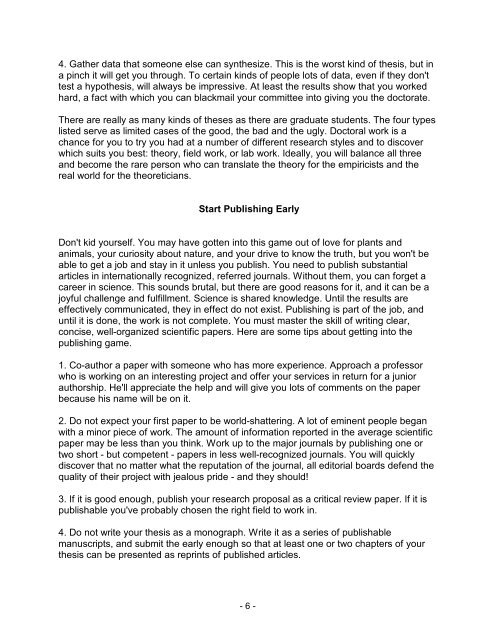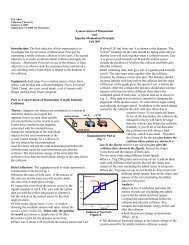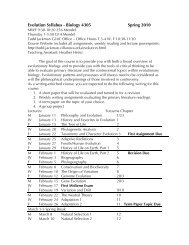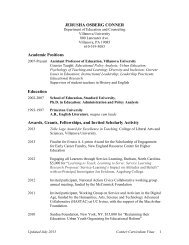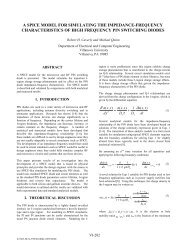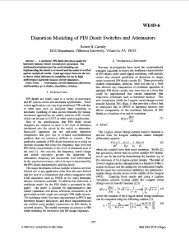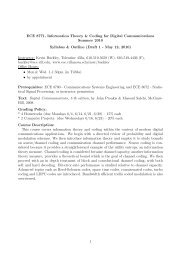SOME MODEST ADVICE FOR GRADUATE STUDENTS Stephen C ...
SOME MODEST ADVICE FOR GRADUATE STUDENTS Stephen C ...
SOME MODEST ADVICE FOR GRADUATE STUDENTS Stephen C ...
Create successful ePaper yourself
Turn your PDF publications into a flip-book with our unique Google optimized e-Paper software.
4. Gather data that someone else can synthesize. This is the worst kind of thesis, but in<br />
a pinch it will get you through. To certain kinds of people lots of data, even if they don't<br />
test a hypothesis, will always be impressive. At least the results show that you worked<br />
hard, a fact with which you can blackmail your committee into giving you the doctorate.<br />
There are really as many kinds of theses as there are graduate students. The four types<br />
listed serve as limited cases of the good, the bad and the ugly. Doctoral work is a<br />
chance for you to try you had at a number of different research styles and to discover<br />
which suits you best: theory, field work, or lab work. Ideally, you will balance all three<br />
and become the rare person who can translate the theory for the empiricists and the<br />
real world for the theoreticians.<br />
Start Publishing Early<br />
Don't kid yourself. You may have gotten into this game out of love for plants and<br />
animals, your curiosity about nature, and your drive to know the truth, but you won't be<br />
able to get a job and stay in it unless you publish. You need to publish substantial<br />
articles in internationally recognized, referred journals. Without them, you can forget a<br />
career in science. This sounds brutal, but there are good reasons for it, and it can be a<br />
joyful challenge and fulfillment. Science is shared knowledge. Until the results are<br />
effectively communicated, they in effect do not exist. Publishing is part of the job, and<br />
until it is done, the work is not complete. You must master the skill of writing clear,<br />
concise, well-organized scientific papers. Here are some tips about getting into the<br />
publishing game.<br />
1. Co-author a paper with someone who has more experience. Approach a professor<br />
who is working on an interesting project and offer your services in return for a junior<br />
authorship. He'll appreciate the help and will give you lots of comments on the paper<br />
because his name will be on it.<br />
2. Do not expect your first paper to be world-shattering. A lot of eminent people began<br />
with a minor piece of work. The amount of information reported in the average scientific<br />
paper may be less than you think. Work up to the major journals by publishing one or<br />
two short - but competent - papers in less well-recognized journals. You will quickly<br />
discover that no matter what the reputation of the journal, all editorial boards defend the<br />
quality of their project with jealous pride - and they should!<br />
3. If it is good enough, publish your research proposal as a critical review paper. If it is<br />
publishable you've probably chosen the right field to work in.<br />
4. Do not write your thesis as a monograph. Write it as a series of publishable<br />
manuscripts, and submit the early enough so that at least one or two chapters of your<br />
thesis can be presented as reprints of published articles.<br />
- 6 -


